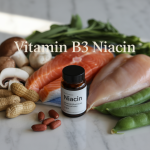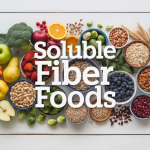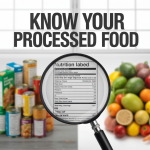Arthritis pain doesn’t have to control your daily life. Simple changes to what you eat can reduce inflammation in your joints and help you feel more comfortable throughout the day.
This guide is for anyone dealing with arthritis pain who wants to explore nutritional approaches to relieve arthritis pain without relying solely on medications. You’ll discover practical ways to use food as medicine.
We’ll cover three key areas to transform how you eat for joint health. First, you’ll learn which anti-inflammatory foods can become your new best friends for pain relief. Second, we’ll explore specific foods that might be making your arthritis worse and how to replace them with better options. Finally, you’ll get a step-by-step approach to building your own meal plan that targets inflammation and supports your joints long-term.
Understanding How Diet Impacts Arthritis Inflammation
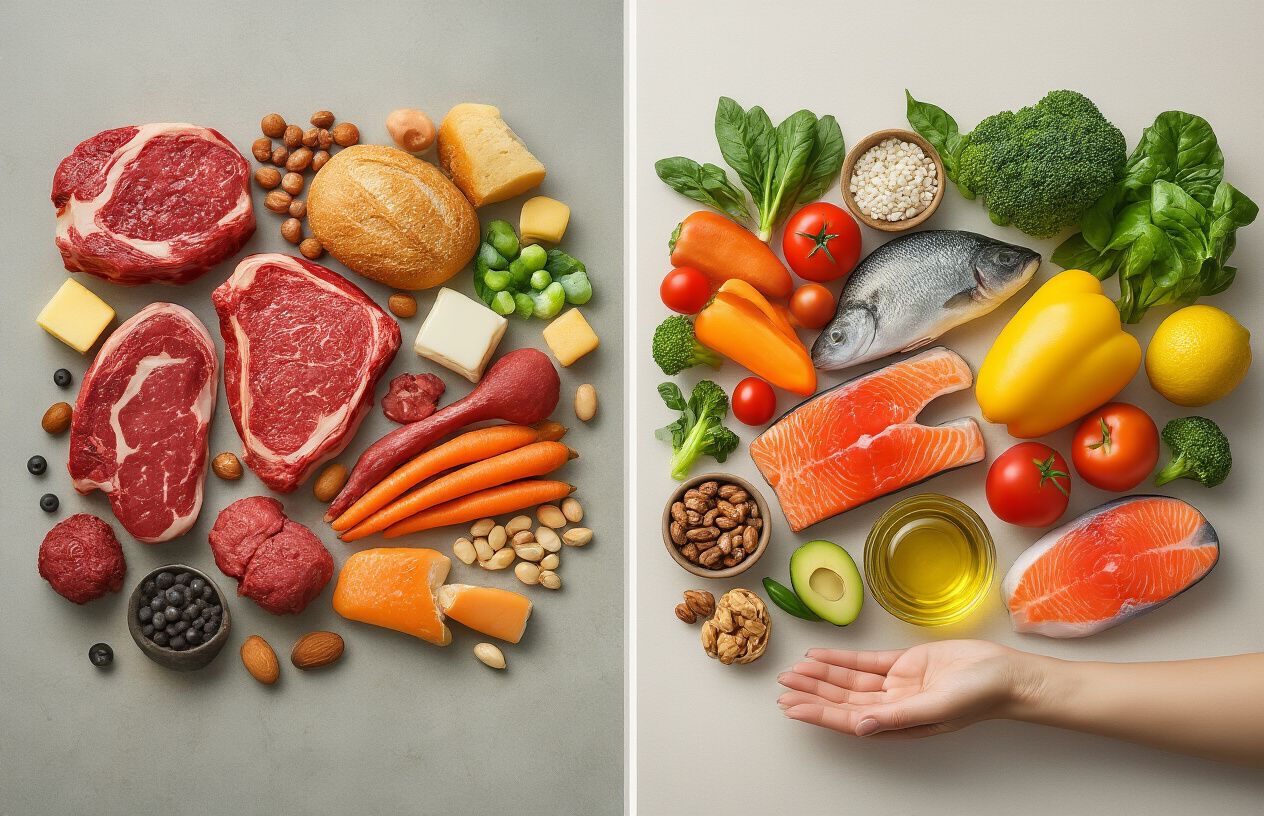
Identify foods that trigger inflammatory responses
Certain foods act like gasoline on the fire of arthritis inflammation. Processed foods top the list of culprits, especially those packed with trans fats and high amounts of omega-6 fatty acids. Think fried foods, packaged snacks, and fast food meals that create a pro-inflammatory environment in your body.
Refined sugars and simple carbohydrates spike blood glucose levels, triggering the release of inflammatory cytokines. Foods like white bread, pastries, sodas, and candy create these inflammatory cascades. Red meat and processed meats contain high levels of saturated fats and advanced glycation end products (AGEs) that promote inflammation.
Nightshade vegetables pose problems for some people with arthritis. Tomatoes, potatoes, peppers, and eggplant contain solanine, a compound that may worsen joint pain in sensitive individuals. While not everyone reacts to nightshades, keeping a food diary helps identify personal triggers.
Excessive alcohol consumption interferes with the body’s natural anti-inflammatory processes and can increase uric acid levels, potentially triggering gout flares. Even moderate drinking may exacerbate inflammation in some people.
Recognize nutrients that reduce joint swelling
Omega-3 fatty acids stand as powerful inflammation fighters. These essential fats, found in fatty fish like salmon and mackerel, produce specialized pro-resolving mediators that actively resolve inflammation. EPA and DHA, the main omega-3s, directly counteract inflammatory pathways.
Antioxidants neutralize free radicals that damage joint tissues. Vitamin C supports collagen synthesis and cartilage repair, while vitamin E protects cell membranes from oxidative damage. Polyphenols in colorful fruits and vegetables provide additional anti-inflammatory benefits.
Curcumin, the active compound in turmeric, rivals some anti-inflammatory medications in potency. This golden spice inhibits multiple inflammatory pathways simultaneously. Ginger contains gingerols that reduce prostaglandin production, naturally decreasing pain and swelling.
Sulfur compounds in garlic and onions help regulate inflammatory responses. These foods contain organosulfur compounds that modulate immune system activity and reduce inflammatory marker levels.
Learn how gut health affects arthritis symptoms
Your gut microbiome plays a surprising role in arthritis development and severity. An imbalanced gut allows harmful bacteria to produce inflammatory compounds that enter systemic circulation, reaching your joints and triggering immune responses.
Leaky gut syndrome enables undigested food particles and bacterial toxins to cross the intestinal barrier. Your immune system mistakes these particles for threats, creating antibodies that may cross-react with joint tissues, leading to autoimmune arthritis flares.
Beneficial bacteria produce short-chain fatty acids like butyrate, which have potent anti-inflammatory properties. These compounds help regulate T-cell responses and reduce inflammatory cytokine production throughout your body.
Fiber-rich foods feed good bacteria, promoting a healthy microbial balance. Prebiotic foods like garlic, onions, and asparagus nourish beneficial strains, while probiotic foods like yogurt and fermented vegetables directly introduce helpful bacteria.
Research shows people with rheumatoid arthritis often have distinct gut bacteria patterns compared to healthy individuals. Restoring microbial diversity through dietary changes may reduce arthritis symptoms and slow disease progression.
Essential Anti-Inflammatory Foods for Joint Relief
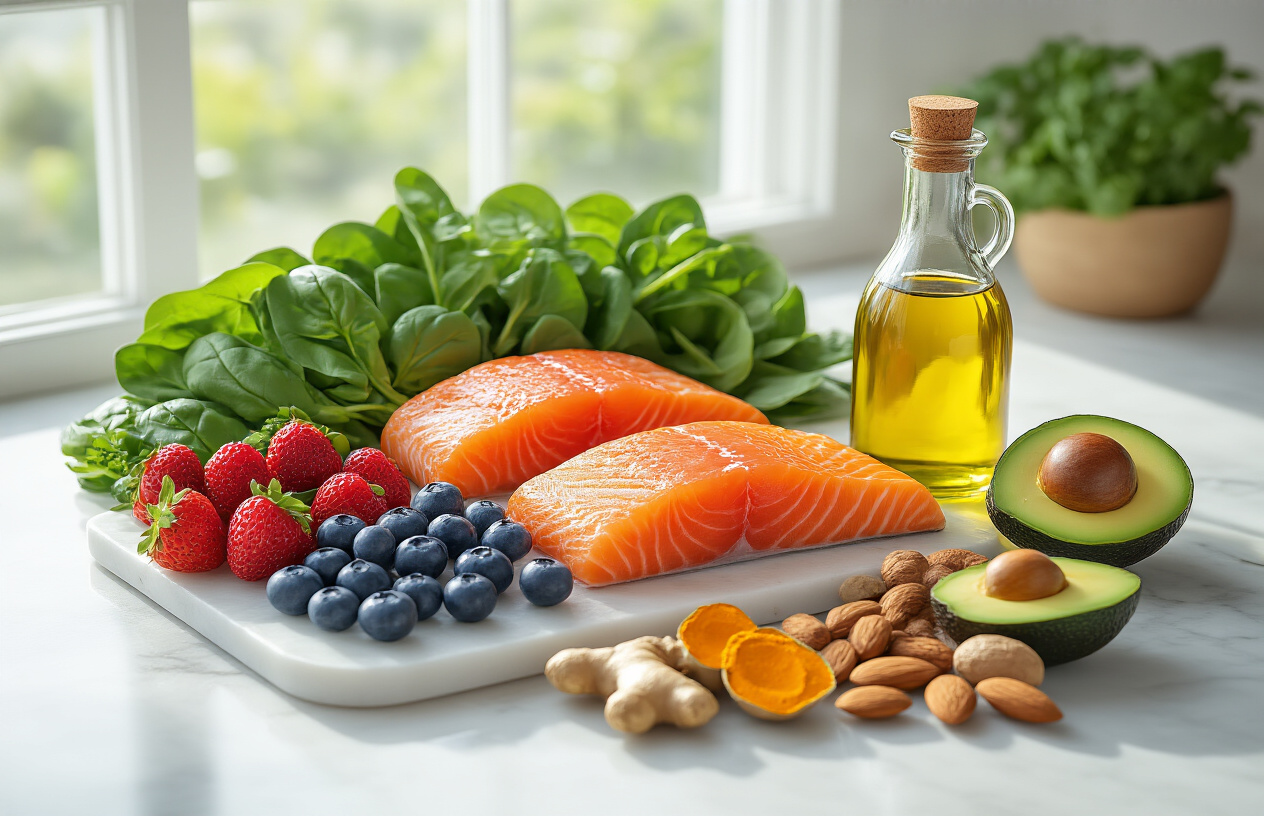
Incorporate omega-3 rich fish and seafood
Fatty fish stands as your strongest ally in the fight against arthritis inflammation. Salmon, mackerel, sardines, and tuna pack powerful omega-3 fatty acids that directly combat the inflammatory processes damaging your joints. These marine-sourced omega-3s – EPA and DHA – work like natural medicine, reducing the production of inflammatory compounds while promoting the creation of anti-inflammatory molecules called resolvins.
Aim for two to three servings of fatty fish weekly to see real benefits. Wild-caught salmon offers superior omega-3 content compared to farm-raised varieties. Sardines and anchovies might not sound appetizing, but they’re nutritional powerhouses with minimal mercury concerns. If fresh fish isn’t always available, canned versions work just as well – choose those packed in water or olive oil.
Shellfish like mussels, oysters, and crab also contribute valuable omega-3s along with zinc, which supports joint tissue repair. Even if you’re not a seafood enthusiast, small portions incorporated into pasta dishes, salads, or soups can make a significant difference in managing arthritis symptoms.
Add colorful fruits and vegetables to daily meals
The vibrant colors in fruits and vegetables signal the presence of powerful antioxidants and anti-inflammatory compounds that your joints desperately need. Dark leafy greens like spinach, kale, and Swiss chard contain high levels of vitamin K, which helps regulate inflammatory responses in your body.
Berries deserve special attention for arthritis management. Blueberries, strawberries, and cherries are loaded with anthocyanins – compounds that give them their deep colors and provide potent anti-inflammatory effects. Tart cherry juice has shown particular promise in reducing joint pain and stiffness.
Orange and yellow vegetables like sweet potatoes, carrots, and bell peppers supply beta-carotene and vitamin C, both essential for collagen formation and joint tissue maintenance. Cruciferous vegetables such as broccoli, cauliflower, and Brussels sprouts contain sulforaphane, which may help slow cartilage damage.
| Color Group | Examples | Key Benefits |
|---|---|---|
| Red/Purple | Cherries, grapes, beets | Anthocyanins reduce inflammation |
| Orange/Yellow | Carrots, sweet potatoes, oranges | Beta-carotene supports tissue repair |
| Green | Spinach, broccoli, kale | Vitamin K regulates inflammatory response |
Choose whole grains over processed alternatives
Refined grains trigger inflammatory responses that can worsen arthritis symptoms, while whole grains provide sustained energy and anti-inflammatory benefits. The key difference lies in processing – whole grains retain their fiber-rich bran and nutrient-dense germ, while refined grains are stripped of these valuable components.
Quinoa stands out as an exceptional choice, offering complete protein along with anti-inflammatory properties. Brown rice, oats, and barley provide steady blood sugar levels, preventing the inflammatory spikes associated with processed foods. Ancient grains like farro, bulgur, and amaranth bring variety while delivering impressive nutrient profiles.
The fiber in whole grains feeds beneficial gut bacteria, which play a surprising role in managing inflammation throughout your body. A healthy gut microbiome produces short-chain fatty acids that help regulate immune responses and reduce systemic inflammation affecting your joints.
Replace white bread with whole grain options, swap white rice for brown rice or quinoa, and choose steel-cut oats over instant varieties. Reading labels becomes important – look for “100% whole grain” as the first ingredient to ensure you’re getting real benefits.
Include nuts and seeds for healthy fats
Nuts and seeds provide concentrated doses of healthy fats, protein, and minerals that support joint health. Walnuts contain the highest levels of plant-based omega-3s (ALA) among tree nuts, making them particularly valuable for reducing inflammation. Just a handful daily can help balance your omega-3 to omega-6 ratio.
Almonds, rich in vitamin E and magnesium, help protect joint tissues from oxidative damage. Brazil nuts provide selenium, a trace mineral that supports antioxidant enzyme function. Seeds offer similar benefits – flaxseeds and chia seeds are omega-3 powerhouses that easily blend into smoothies, yogurt, or oatmeal.
Pumpkin seeds deliver zinc and magnesium, both important for bone health and inflammatory regulation. Sunflower seeds provide vitamin E and healthy fats that support overall joint function.
Keep portions reasonable – about one ounce or a small handful per day provides benefits without excessive calories. Raw or lightly roasted varieties offer the best nutritional value compared to heavily processed or salted options. Try adding crushed nuts to salads, mixing seeds into breakfast bowls, or enjoying a small portion as a satisfying snack between meals.
Foods to Avoid for Better Arthritis Management

Eliminate processed and fried foods from your diet
Processed and fried foods create a perfect storm of inflammation in your body. These foods contain high levels of trans fats, advanced glycation end products (AGEs), and omega-6 fatty acids that directly trigger inflammatory pathways. When you eat packaged snacks, fast food, or deep-fried items, you’re essentially pouring gasoline on the fire of arthritis inflammation.
The manufacturing process strips away natural nutrients while adding preservatives, artificial colors, and flavor enhancers that your immune system recognizes as foreign invaders. Your body responds by ramping up inflammation, making joint pain and stiffness worse. Fried foods are particularly problematic because high-heat cooking creates compounds that damage your cells and joints.
Common culprits to remove from your pantry:
- Packaged cookies, crackers, and chips
- Frozen dinners and pre-made meals
- Fast food burgers, fries, and chicken nuggets
- Doughnuts, pastries, and fried desserts
- Processed meats like hot dogs and deli meats
Reduce sugar and refined carbohydrate intake
Sugar acts like a match that ignites inflammation throughout your body. When you consume refined sugars and processed carbohydrates, your blood sugar spikes rapidly, triggering the release of inflammatory cytokines. These proteins signal your immune system to attack, causing the swelling and pain you feel in your joints.
Refined carbs behave similarly to sugar in your body. White bread, pasta, and rice get broken down quickly, creating the same inflammatory cascade. The constant blood sugar rollercoaster keeps your body in a state of chronic inflammation, making arthritis symptoms persist and worsen over time.
High-sugar foods to minimize:
- Sodas and sweetened beverages
- Candy, chocolate bars, and sweets
- White bread, bagels, and pastries
- Sugary breakfast cereals
- Ice cream and frozen treats
Replace these with whole grains like quinoa, brown rice, and steel-cut oats that provide steady energy without the inflammatory spike.
Limit red meat and high-fat dairy products
Red meat contains high levels of saturated fats and arachidonic acid, both of which promote inflammation in your body. When you regularly eat beef, pork, or lamb, you’re feeding the inflammatory pathways that make arthritis pain worse. The iron in red meat can also accumulate in your joints, causing oxidative stress and damage.
High-fat dairy products pose a similar problem. The saturated fats in whole milk, cheese, and butter can increase inflammatory markers in your blood. Some people also have sensitivities to casein, a protein in dairy, which can trigger an immune response that affects joint health.
Better protein alternatives:
- Wild-caught fish rich in omega-3s
- Organic chicken and turkey (in moderation)
- Plant-based proteins like lentils, chickpeas, and quinoa
- Hemp seeds, chia seeds, and walnuts
If you choose to keep some dairy, opt for low-fat Greek yogurt or small amounts of organic, grass-fed options.
Avoid excessive alcohol consumption
While an occasional glass of wine might seem harmless, regular alcohol consumption creates inflammation throughout your body. Alcohol disrupts your gut bacteria balance, leading to increased intestinal permeability (leaky gut). This allows inflammatory compounds to enter your bloodstream and target your joints.
Alcohol also interferes with your body’s ability to absorb essential nutrients like vitamin C, vitamin D, and B vitamins that your joints need to stay healthy. It dehydrates your tissues, including the cartilage in your joints, making them more prone to damage and pain.
Guidelines for alcohol consumption:
- Limit intake to no more than one drink per day for women, two for men
- Choose red wine over beer or spirits when you do drink
- Always have alcohol with food to slow absorption
- Stay well-hydrated with water between alcoholic drinks
- Consider eliminating alcohol completely during arthritis flare-ups
Key Supplements That Support Joint Health
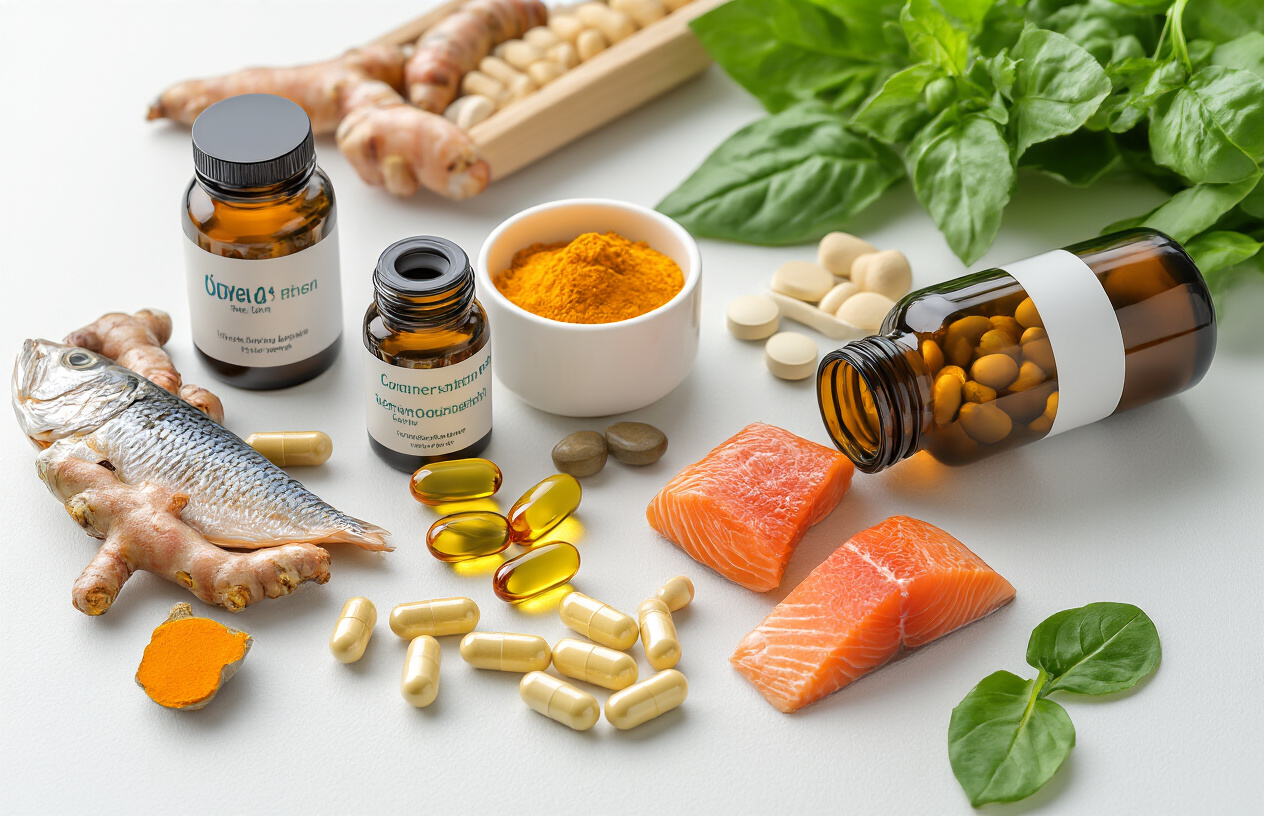
Boost healing with omega-3 fatty acid supplements
Fish oil supplements pack a powerful punch against arthritis pain by delivering concentrated doses of EPA and DHA, the two most effective omega-3 fatty acids for reducing joint inflammation. Clinical studies show that taking 2-3 grams daily can significantly decrease morning stiffness and reduce the need for pain medications within 8-12 weeks.
Cold-water fish like salmon and mackerel provide the best natural sources, but supplements offer consistency and higher concentrations. Look for molecularly distilled products that guarantee purity and potency. Plant-based alternatives like algae oil work well for vegetarians, though they typically require higher doses to achieve similar benefits.
The anti-inflammatory effects happen because omega-3s compete with omega-6 fatty acids in cellular pathways, essentially crowding out the compounds that trigger inflammatory responses. This biological competition helps rebalance your body’s inflammatory processes naturally.
Strengthen cartilage using glucosamine and chondroitin
These two supplements work as building blocks for healthy cartilage, the cushioning tissue that protects your joints from wear and tear. Glucosamine sulfate provides raw materials for cartilage repair, while chondroitin sulfate helps maintain cartilage structure and prevents its breakdown.
Research shows the most benefits come from taking them together – typically 1,500mg of glucosamine and 1,200mg of chondroitin daily. The effects build slowly over 2-6 months, so patience pays off. People with moderate arthritis often experience better results than those with severe joint damage.
Quality matters tremendously with these supplements. Marine-sourced glucosamine from shellfish tends to be more bioavailable than synthetic versions, though vegetarian alternatives exist for those with allergies.
Reduce inflammation with turmeric and curcumin
Curcumin, the active compound in turmeric, rivals some prescription anti-inflammatory drugs in potency without the side effects. This golden spice blocks multiple inflammatory pathways simultaneously, making it particularly effective for arthritis pain relief.
Standard turmeric powder contains only 2-3% curcumin, so concentrated extracts work much better for therapeutic purposes. Look for supplements with 500-1000mg of curcumin combined with black pepper extract (piperine), which increases absorption by up to 2000%.
Many people notice reduced joint pain and improved mobility within 4-8 weeks of consistent use. The anti-inflammatory effects are dose-dependent, meaning higher amounts generally provide greater benefits up to safe limits.
Support bone health with vitamin D and calcium
Strong bones provide the foundation for healthy joints, making these nutrients essential for long-term arthritis management. Vitamin D helps your body absorb calcium efficiently while also regulating immune responses that contribute to joint inflammation.
Most adults need 1000-1200mg of calcium daily, preferably split into smaller doses with meals for better absorption. Vitamin D requirements vary based on sun exposure and geographic location, but 1000-2000 IU daily works for most people. Blood testing helps determine your optimal vitamin D dose.
Magnesium deserves attention too – it activates vitamin D and supports calcium metabolism. Taking 400-500mg of magnesium alongside calcium prevents imbalances that could interfere with bone health. Vitamin K2 rounds out this bone-supporting team by directing calcium to bones rather than soft tissues.
Creating Your Personalized Anti-Arthritis Meal Plan

Design balanced meals for optimal nutrient absorption
Building meals that fight arthritis pain requires smart food combinations that maximize nutrient uptake. Start each meal with a protein source like wild-caught salmon, grass-fed beef, or legumes to provide amino acids needed for tissue repair. Pair this with colorful vegetables rich in antioxidants – think purple cabbage, bell peppers, and leafy greens.
Fat plays a crucial role in absorbing fat-soluble vitamins A, D, E, and K. Add a tablespoon of extra virgin olive oil to salads or cook vegetables in coconut oil. Avocados work beautifully as both a healthy fat source and anti-inflammatory food.
Timing matters too. Space meals 4-5 hours apart to allow proper digestion and nutrient absorption. Include turmeric with black pepper – the piperine in black pepper increases curcumin absorption by up to 2000%. Add ginger to smoothies or tea for additional anti-inflammatory benefits.
Create balanced plates using the “arthritis plate method”: fill half your plate with non-starchy vegetables, one quarter with lean protein, and one quarter with complex carbohydrates like quinoa or sweet potatoes. This approach ensures steady blood sugar levels while delivering consistent anti-inflammatory compounds throughout the day.
Plan weekly menus to maintain dietary consistency
Consistency beats perfection when managing arthritis through diet. Planning weekly menus prevents impulsive food choices that could trigger inflammation and ensures you’re getting regular doses of joint-supporting nutrients.
Start by dedicating Sunday afternoons to meal planning. Review your schedule for the upcoming week and identify busy days when you’ll need quick, prep-ahead options. Create a master list of 15-20 anti-inflammatory meals you enjoy, then rotate through them to prevent boredom.
Stock your pantry with arthritis-friendly staples: canned wild salmon, olive oil, frozen berries, nuts, seeds, and whole grains. Keep a running grocery list organized by store sections to streamline shopping.
Batch cooking saves time and maintains consistency. Prepare large portions of anti-inflammatory soups, stews, and grain salads that taste better the next day. Cook proteins in bulk – grill several chicken breasts or bake a whole salmon to use throughout the week.
| Day | Breakfast | Lunch | Dinner |
|---|---|---|---|
| Monday | Berry smoothie with spinach | Salmon salad wrap | Turmeric chicken with vegetables |
| Tuesday | Overnight oats with walnuts | Leftover turmeric chicken | Lentil soup with kale |
| Wednesday | Veggie omelet | Quinoa bowl with avocado | Baked cod with sweet potato |
Prepare joint-friendly snacks and beverages
Smart snacking keeps inflammation in check between meals while providing steady energy. Prepare grab-and-go options that combine protein, healthy fats, and antioxidants.
Mix up trail mix using walnuts, almonds, and anti-inflammatory dried tart cherries. Slice vegetables like carrots, cucumber, and bell peppers for easy dipping in hummus or guacamole. Hard-boiled eggs seasoned with turmeric make protein-rich snacks you can prepare in advance.
Keep inflammation-fighting beverages on hand. Green tea contains powerful antioxidants called catechins that reduce joint inflammation. Brew large batches and store in the refrigerator for iced versions. Golden milk made with turmeric, ginger, and coconut milk provides evening comfort while delivering anti-inflammatory compounds.
Tart cherry juice has shown promising results for reducing arthritis pain and stiffness. Dilute it with sparkling water for a refreshing afternoon drink. Bone broth simmered with ginger and garlic provides collagen for joint health and can be sipped warm or used as a cooking base.
Prepare snack containers at the beginning of each week. Fill glass containers with portioned nuts, cut vegetables, or homemade energy balls made with dates, almonds, and chia seeds. Having these ready prevents reaching for processed snacks that could worsen inflammation.

Food really can be your medicine when it comes to managing arthritis pain. By loading up on anti-inflammatory foods like fatty fish, berries, and leafy greens while cutting back on processed foods and sugar, you’re giving your joints the best chance to feel better. The right supplements can boost these efforts, but the real magic happens when you create a meal plan that works for your lifestyle and preferences.
Start small by swapping out one inflammatory food this week for something that fights inflammation instead. Your joints will thank you for every positive change you make, and you might be surprised at how much better you feel when you’re eating with your arthritis in mind. Remember, managing arthritis through diet isn’t about perfection – it’s about making consistent choices that support your body’s natural healing process.



